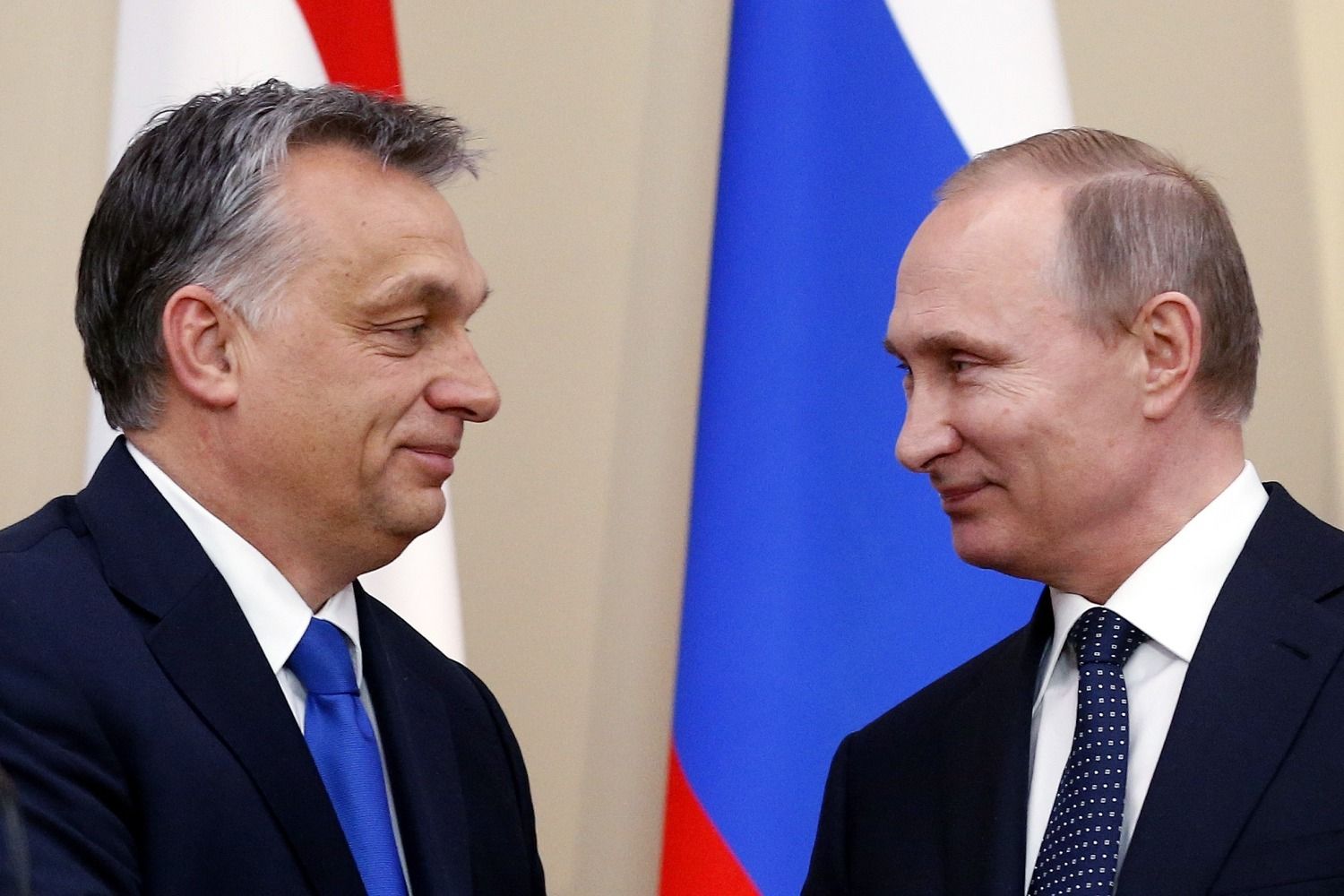Mate Kocsis, the head of the ruling Fidesz parliamentary group in Hungary, announced on September 22 following the closed faction meeting of the ruling party. He said that Fidesz-KDNP is urging the government to begin a new "National Consultation" on European Union sanctions imposed against Russia for its war against Ukraine.
Interesting Warning, support or both: US revelations on covert Russian financing
Hungarian survey on EU sanctions against Russia
The Hungarian government is being urged to undertake a public survey, according to party leaders, so that Hungarians can voice their opinions and become the first in the EU to do so.
Kocsis stated that he anticipates the governing parties to learn what the Hungarians believe about the EU sanctions on Russia from the study and that they will be able to use the Hungarians' viewpoints in upcoming European debates.He continued, "This is an attempt to exert political pressure on the European Union."
It does not make a lot of sense for the government to consult on EU sanctions on Russia, which the PM has "one by one" accepted, according to the major opposition party, DK.
What did force Orban to become Putin’s supporter?
As The Insider revealed, one of the causes for his loyalty might be a tape that criminal boss Semyon Mogilevich shot in the middle of the 1990s that has compromising information on Victor Orban. As a result, Moscow has got solid support from an EU country leader.
Orban referred to Hungary's pre-1989 status as "Moscow's most cheery barracks," saying "Those young people following us should not allow Hungary to become Gazprom's most cheery barracks." He continued to condemn Moscow in 2008, branding other European governments as "Moscow's pawns," and labeling the previous administration's approval of the "South Stream" project as high treason.
The Insider: Russia might have a video kompromat against Orban
In 2009, everything suddenly shifted. At the "United Russia" event in Saint Petersburg, Orban suddenly showed up, where he met Putin. When Orbán was elected prime minister of Hungary a year later, he instantly stopped criticizing Russia and went on to become one of the leading Putin supporters in Europe. What might have happened to Orbán in such a brief time?
The Insider suggests a reason in its investigation. In 1990, Russian criminal boss Semyon Mogilevich relocated from Russia to Budapest, where he remained until the early 2000s (his home was located very close to the Russian Embassy.) In 2003, Interpol added him to its list of people who are most sought after around the world. He then moved from Budapest to the Moscow suburb and hasn't left Russia since. When Ukrainian Security Service major Melnychenko made his notorious tapes available to the public in 2000, the Mogilevich matter was brought up once more.
However, Mogilevich was detained in Moscow in 2008 for tax evasion in connection with the "Arbat Prestige" case. After spending a year and a half in prison, Mogilevich was freed with signed promises to stay in Moscow. The case was soon dismissed for lack of "criminal elements." The businessman Dietmar Clodo thinks that in exchange for his release, Mogilevich turned over some of his assets and gave the Kremlin access to his records implicating Viktor Orbán.
How can national consultation be turned into a propaganda tool?
Since 2011, Orban's government has utilized national consultation polls as a political and communication tool to thematize public discourse and measure support for the government on a particular issue. Additionally, it allows you to create a database of supporters.
The results of the surveys, which are based on unbalanced questions and for which the government is spending billions, support the government's perspective. There have been 11 of these consultations conducted thus far, using billions of Hungarian taxpayer funds for what is essentially a propaganda tool for the Orban's party.
In a closed-door meeting with MPs, the political leader declared that the war between Ukraine and Russia was no longer a regional conflict but had instead evolved into a global economic conflict due to sanctions. He urged the members of his faction to take all necessary steps to guarantee that Europe lifts its sanctions no later than the end of the current year.
Hungary intensified objections to EU sanctions against Russia
Although Hungary has up till now complied with the sanctions, it did obtain concessions on the crude oil boycott that comes into force in December. Orban has also indicated that he will attempt to resist the eighth wave of EU sanctions against Russia.
Hungary's government has intensified its objection to the sanctions against Moscow as inflation reaches a multi-decade high and the energy crisis affects individuals and businesses. Viktor Orban has frequently attributed soaring costs to anti-Russia sanctions, claiming that if the sanctions were withdrawn, energy prices would quickly drop by half and inflation would decrease.
However, as commentators had noted, Hungary had one of the highest rates of inflation in Europe before the war, and before the election, the government imposed price restrictions on fuel and a half-dozen basic foods.
According to analysts, Orban's most recent initiative to survey sanctions is another attempt to shift responsibility for the economy's problems away from his procyclical and expansive fiscal policy of recent years as well as the pre-election spending spree that put the state budget in a precarious position. He might also be obliged to do so by pressure from the Kremlin.


